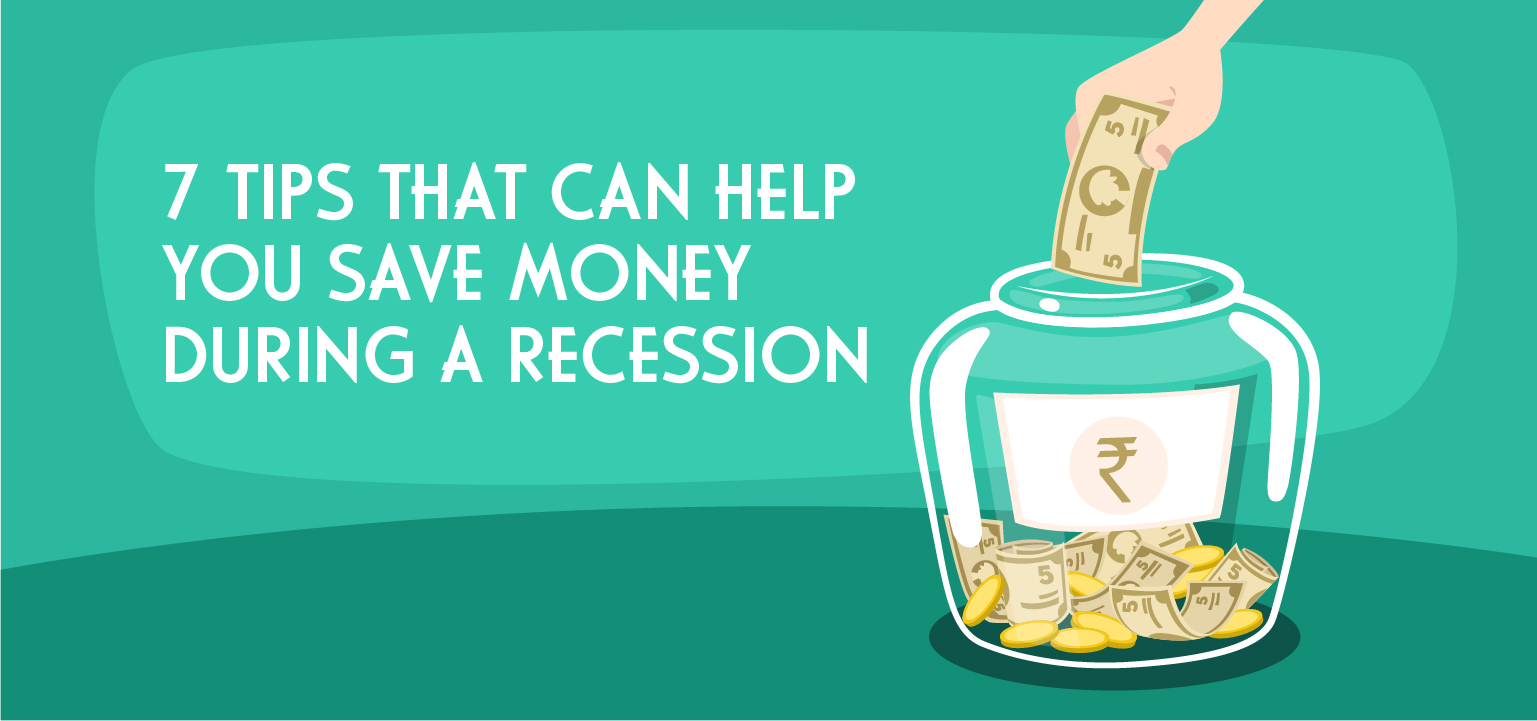The coronavirus pandemic underscores just how difficult it is to predict what will cause a global recession. At the beginning of 2020, a rapidly spreading virus wasn’t on anyone’s radar, but things unraveled swiftly thereafter.
Fact is that one doesn’t need a contagion or pandemic outbreak to evaluate their finances. If you personally feel nervous that there’s change on the horizon and recession is around the corner, it’s always a good time to say, ‘What can I do within my capacity to put myself in a stronger financial position and thus, guard myself when the time comes.’
Here, we discuss 7 tips that could put you in an ideally better place immaterial of a recession:
1. Boost your emergency funds:
Make sure that you are supported by a significant emergency fund. An emergency fund is usually enough savings to cover your complete expenses for six months. The expense should encapsulate all your EMIs and debt payments.
2. Determine how much you can cut back:
It would be a good idea to go through your monthly expenses and put your finger on items that are discretionary, such as services or items you can do without. Make a decision between want and necessity. Find payments that are on auto-mode (For example, an expensive subscription etc.) and evaluate their need in your budget.
3. Live within the determined budget:
Experts typically recommend spending no more than 30 percent of your income. It’s advisable to create a monthly budget and not overspend.
4. Determine your risk tolerance and appetite:
Risk suitability is another important factor. It is an important aspect that’s based on when you have plans on liquidating your investments. If you are changing your investment strategy, it should be based on your appetite for risk.
5. Look for ways to increase your income:
Don’t rest on your laurels or assume that your job is secure. Look for ways you can make money on the side. Now is also a good time to learn a new skill. With so much buzz around side-hustles, this is probably a good time to get your hands dirty.
6. Don’t Opt For the Moratorium, If You Can Pay Off Debts
It may seem like a convenient way out of a pandemic, but it is not wise. Why not, you may ask? The simple reason is that impending interest charges will be levied after the moratorium period is over. You may not want to deal with that burden at a later point, when you are comfortable to pay it now.
7. Rigidify your investments:
Stock markets across the globe have witnessed volatility since the pandemic broke out. It is possible that the overall value of your investment portfolio has come down due to the crisis. You can consider diversifying your investments into various asset classes to mitigate risks and reap in maximum possible benefits. Look for an appropriate mix of financial instruments to get the best. It is best advised to seek the help of a financial advisor to make such decisions
Spending the money you earn, saving a portion of it, looking for investments in the right direction and consistent budgeting are aspects of personal finances that may sound overwhelming to deal with at first. But with planning , followed by the required action, everyone can reach their money goals and float through any crisis unscathed.
